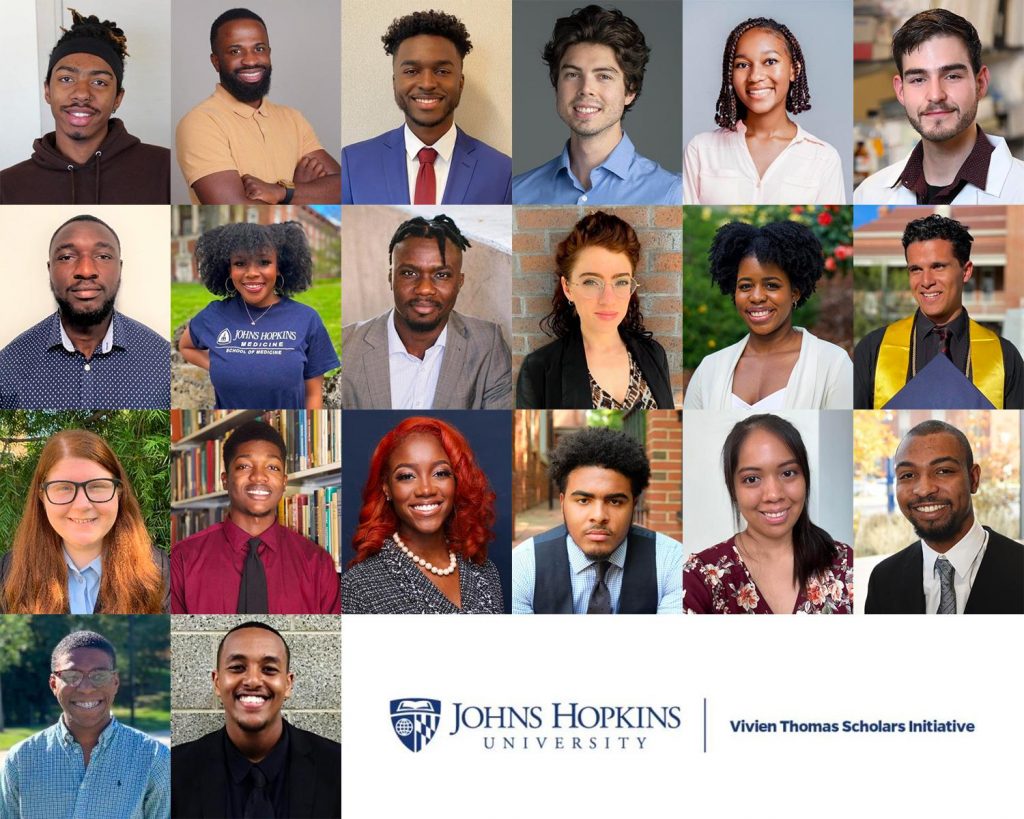Johns Hopkins UniversityEst. 1876
America’s First Research University
Inspired by and named for Vivien Thomas, a gifted scientist who is perhaps best known for his work to develop and refine a lifesaving surgical technique to treat “blue baby syndrome,” the new Vivien Thomas Scholars Initiative aims to address historic underrepresentation in science, technology, engineering, and math fields by creating pathways for exceptional students from Historically Black Colleges and Universities (HBCUs) and Minority Serving Institutions to pursue PhDs in STEM fields at Johns Hopkins. The program — announced in May 2021 and backed by a $150 million gift from Bloomberg Philanthropies — formally welcomes its first cohort of 20 scholars to campus this week.

The group comes from across the country, and the scholars have studied at some of the nation’s top HBCUs, including Howard, Morehouse, Fisk, and Morgan State.
Their credentials are incredibly impressive, their interests many and varied. One scholar created a 600+ member organization dedicated to fostering gender diversity in the data science community; another set up food pantries to address food insecurity. They are musicians, poets, podcast hosts, athletes, mentors, volunteers, and so much more.
“I consider this to be a phenomenal group of human beings,” says Damani Piggott, the inaugural director of the initiative. “They’ve had an excellent record of scholarship. They’ve been engaged in outstanding research. They already have an exemplary record of leadership. They are innovators, founders, presidents and vice presidents of various organizations. They are committed to service and devoted to advancing the pathways of those coming in the journey behind them.”
Over six years, the program will grow to support 100 PhD students in JHU’s more than 30 STEM programs at the schools of Arts & Sciences, Engineering, Medicine, and Public Health. Vivien Thomas Scholars will receive up to six years of full tuition support, a stipend, health benefits, as well as mentorship, research, and professional development opportunities.
“For us to get the best output in terms of our STEM enterprise, we can only do that if we are able to harness excellence, creativity, and innovation from every single corner of our society,” Piggott says. “The data is very clear. We see it in business, we see it in educational journeys, and this is very much true in STEM. There’s no way around that premise, that we have to connect the full human potential that exists across our society to be able to solve maximally the world’s greatest challenges.”
Read the full story on The Hub.
Topics: Students, Bloomberg School of Public Health, Krieger School of Arts and Sciences, School of Medicine, Whiting School of Engineering, Support Scholars